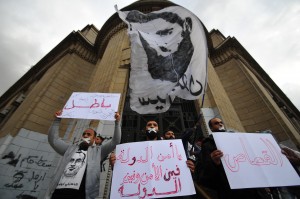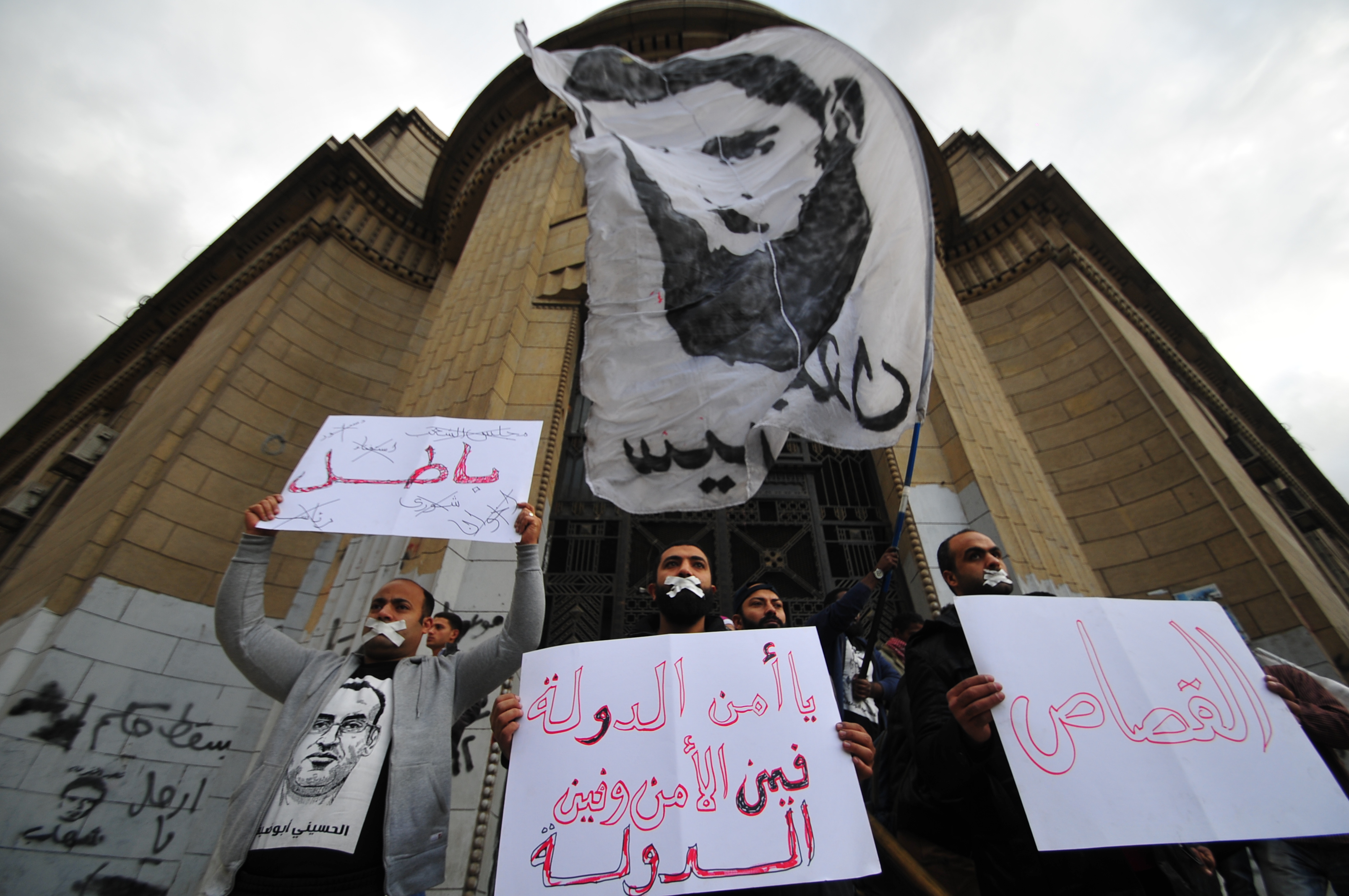
Graffiti memorialising Sayed Bilal has been painted and a silent vigil has been held for him, two years after his murder at the hands of police.
Mahmoud El-Sayed, who is a member of Nation Without Torture campaign, organised the memorial independently.
El-Sayed was joined by a handful of people in Mohamed Mahmoud Street on Monday morning, where they painted a huge portrait of Bilal, using a stencil. Those who died during the 25 January revolution are frequently honoured by having their portraits painted in Mohamed Mahmoud Street.
The group then moved to the steps of the Court of Cassation where they held a silent vigil for Bilal. At that point, there were barely two dozen protesters.
Sayed Bilal was a Salafi from Alexandria. He was taken into police custody on 5 January, 2011 as a suspect in the bombing of the All Saints Church on 1 January, 2011. One day later, his body was handed over to his family. Torture marks were found across Bilal’s body. Bilal’s murder came less than 20 days before the onset of the 2011 Revolution.
El-Sayed said: “There is no one here from Islamist groups,” adding that he had informed several Islamist movements and parties of the memorial.
One of the protesters, Nagla’ Abdel-Gawad said: “The Salafi current does not mention [Bilal].”
The protesters held posters reading, “retribution,” “we are all Sayed Bilal,” and “ the presidency, the People’s Assembly, the referendum, the Muslim Brotherhood and Shura Council are all void.”
Some of the protesters covered their mouths with tape and wrote “retribution or chaos” and “there are no more words” on the symbolic gags.
El-Sayed said: “I think Sayed Bilal is like Khaled Said, he is one of the reasons of the 2011 Revolution.”
Om Ali, an elderly lady who joined the protest said she took part despite the low turnout: “Even if one person shows up, we have to make them two to support the families of the martyrs.”
In 2012, five police officers were sentenced to prison for Bilal’s killing, four of them in absentia. The one officer who was present in court requested a retrial and was acquitted last month.
Abdel-Gawad does not feel that justice was served: “We still do not know who bombed the church.”


